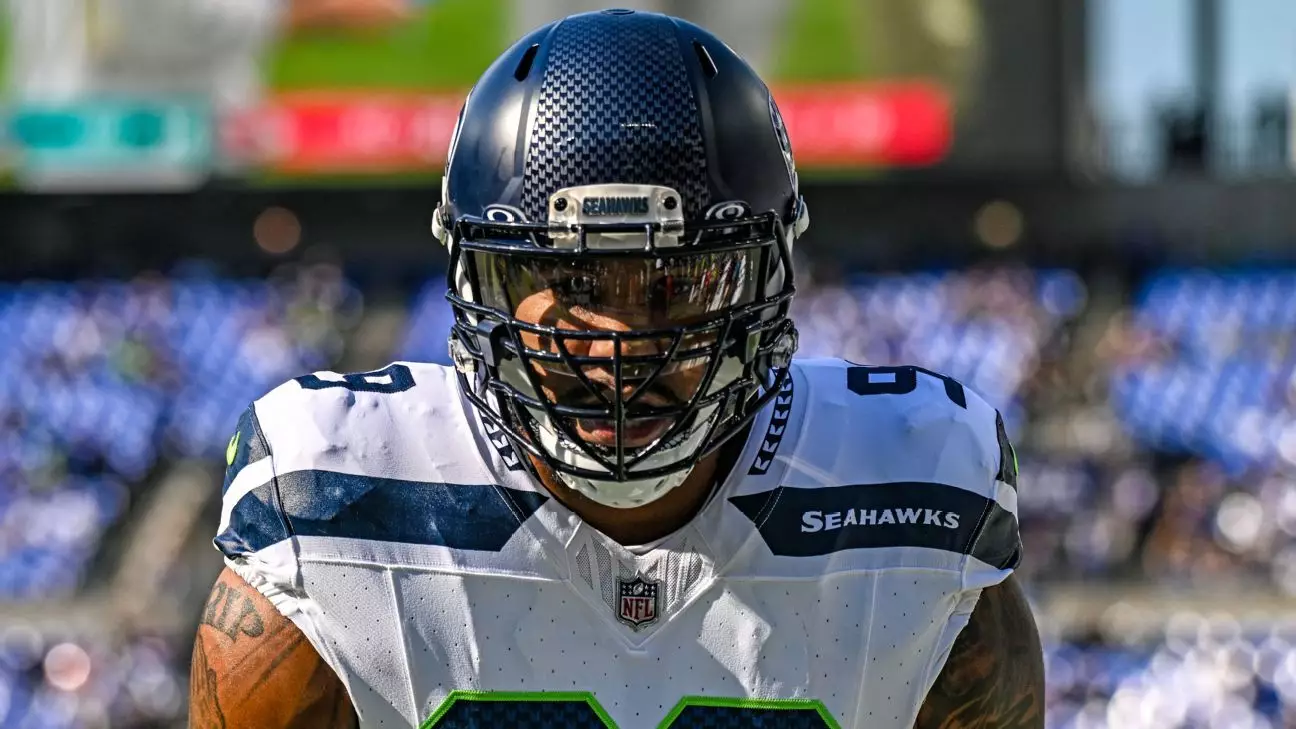The Pro Bowl, held annually as the NFL’s all-star game, has long been a source of pride and contention among players. While some achieve the accolade, others feel disregarded despite glaring statistics that suggest they deserve recognition. This year, the contrast between Seattle Seahawks cornerback Devon Witherspoon and defensive tackle Leonard Williams illustrates this dichotomy, sparking conversations around performance validation and the legacy of players as they navigate their careers.
Devon Witherspoon, the Seahawks’ first-round draft pick, successfully earned his second consecutive Pro Bowl selection this year. Despite his limited statistical contributions (no interceptions and just one sack), his impact on the field has been undeniable. Players like Witherspoon are often recognized not just for the numbers they accrue but for their overall influence on the game. Their intangibles—tackling ability, coverage skills, and presence on the field—often create an effect that transcends mere statistics. Witherspoon’s ascension into the Pro Bowl spotlight underscores the hidden dimensions of football that evaluators sometimes overlook, raising questions about what criteria should dominate voting.
Witherspoon himself acknowledged the surprising disconnect between his selection and Williams’ omission, calling attention to what he perceives as an oversight. This gap between performance and recognition begs the question: Are voters considering the full picture, or are certain metrics being prioritized too rigidly? His sentiment resonates with both fans and peers, challenging the integrity of the voting process as more players become aware of how recognition can define a player’s trajectory.
On the other end of the spectrum lies Leonard Williams, whose impressive season output included a career-high in sacks and pivotal defensive plays, such as a record-setting interception return. Williams expressed his disappointment candidly, alluding to the recurrent nature of being passed over for the Pro Bowl despite demonstrable merit. His statistics, including nine sacks and 15 tackles for a loss, indicate performance levels that, in any reasonable analysis, should likely warrant a selection.
The emotional weight of such snubs can take a toll on players, especially those like Williams who have dedicated over a decade to the sport. A lack of recognition can evoke feelings of inadequacy and disillusionment with the evaluation processes. Williams’s comments reflect this inner conflict; while he respects the choices made by voters, the pain of being pitted against teammates and statistical peers in the selection process cannot be understated. This clash highlights the broader question of whether the selection process adequately reflects player contributions, and whether the subjective nature of Pro Bowl voting undermines the legacy-building experiences that such accolades are intended to foster.
Another critical angle in this ongoing discussion is the suggestion of bias within the system. Geno Smith, the Seahawks quarterback, voiced concerns about potential biases that may exist based on a player’s team or market. This assertion brings to light an essential discussion: how much does a player’s team profile impact their chances for recognition? Are certain players or markets favored over others, creating systemic barriers to acknowledgment for players who perform admirably outside of marquee franchises?
The implications of such biases extend beyond individual players and into the broader framework of the league itself. They speak to the need for a more structured and equitable process that evaluates players holistically rather than relying on historical precedence or popular narratives. By fostering a system where performance reigns supreme, the NFL could enhance both the integrity of its accolades and the morale of its players, many of whom toil in relative obscurity.
This reflection on the 2023 Pro Bowl selections illustrates the complex dynamics at play in player recognition. While Witherspoon’s achievement is laudable, it should also prompt a reevaluation of how contributions are assessed and ultimately rewarded. Williams’s frustration and the sentiment echoed by his peers serve as a call to action for all stakeholders involved—the players, the teams, and the league itself—to rethink what it means to truly honor excellence in professional football.
In an era where career legacies are increasingly scrutinized, the Pro Bowl needs to serve not just as an exhibition of talent but as a fair arena to reward performance and impact. The discussions ignited this year are a crucial step toward creating a future where every player can feel validated and recognized for their contributions, irrespective of team affiliations or preconceived biases.


Leave a Reply